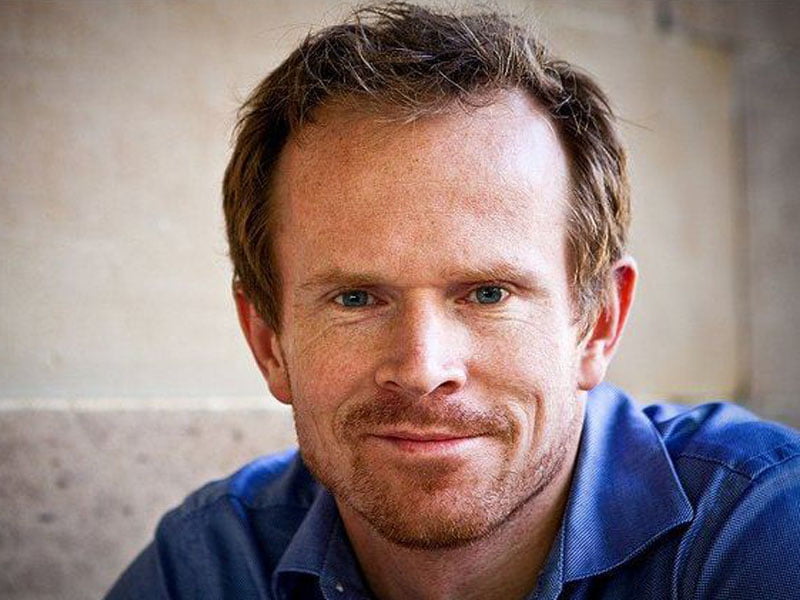Mick Liubinskas is known to many in the industry for his energy and drive, and his focused ideals about what the local entrepreneur ecosystem should look like.
He has founded some companies, mentored a whole lot more and spent more than two years as entrepreneur in residence at the Telstra accelerator Muru-D. Most recently he has been Muru-D’s venture portfolio manager based in San Francisco.
Mr Liubinskas has been back in Australia this week as a part of the selection process for the Muru-D SYD4 program, bringing with him some impressions as a returning outsider.

Sure, there is a lot to get excited about, but people who know Mick say he is positive and excited most of the time. But there are reasons to be cheerful, he says.
Density, density
“I see a lot of Australians in Silicon Valley who wonder about why [ecosystem leaders] in Australia have such an obsession about density,” Mr Liubinskas said. “I would say it’s pretty easy to say that when you’ve got such an abundance.”
“We have a huge geography and a small population. We have some amazing people – brilliant technologists and really talented entrepreneurs – and they are spread right across Australia.”
“If they were all in, say, Newcastle, then Newcastle would be up there [like a] Silicon Valley. That is a structural challenge [in Australia] that is very easy to see.”
The depth and breadth of the work being done in Silicon Valley has led to deep, deep specialisations “and we just don’t have that in Australia.”
The upside, he says, has led to one of the great strengths of the Aussie ecosystem. Our generalist entrepreneurs are building good cash-flow businesses.
“That’s something we have a great reputation for. Our entrepreneurs are honest and build businesses that can survive the winter.”
Tax offset is awesome
Mr Liubinskas current role involves supporting Muru-D portfolio companies as they look at the US market, and in heling to raise Series A and Series B funding for growth. That’s not to say these companies are moving offshore, although it is an option.
The reality he says is that no-one in A, B or C wants their tech team in the US. It’s too expensive. “Having a tech team in Australia and selling into the US market is perfect.”
“The R&D offset really sets us up for that, it’s absolutely perfect.”
Sidecar funds
“The groups of good angel investors supporting the ecosystem as syndicates or follow-on funds is a huge part of the Silicon Valley investment scene and that’s just starting to happen in Australia. I really hope that policy-wise that can be supported,” he said.
These follow-on funds – sometimes called sidecar funds – are groups of angels that invest in the graduates from specific accelerator.
An example is the recently set-up Bardama fund that invests in Muru-D graduates. Blackbird is similarly understood to have less formal groupings of angels investing in Startmate graduates.
What is not clear is whether these investors in such sidecar vehicles automatically qualify for the Turnbull Government incentives that target angels who invest directly in startups.
“These follow-on funds are an incredibly important part of the ecosystem. They are a critical piece of infrastructure. These are successful entrepreneurs and business people who put their money in together and back these [startup] companies as they come out of accelerators.”
Returning entrepreneurs
“I often talk about how the startup ecosystem grows on compound interest. And one of the biggest multipliers of that is the successful multipliers who reinvest in the ecosystem,” Mr Liubinskas said.
“Because while very often they bring their money, more importantly they bring their time and expertise and experience,” he said.
“That’s what I’m most excited about. Because right now there seems to be another batch of people with good values arriving who are working part time or even full time in the ecosystem.
He points to personnel like Dean McEvoy at TechSydney, Ben Sand and Stefan Knight at Muru-D and Nick Crocker at Startmate as being part of a growing number of entrepreneurs re-engaged in ecosystem roles that provide a “100x multiplier effect.”
The Trump factor
The notion that Donald Trump’s election will lead to an exodus of entrepreneurs and technical talent from the US is over-blown, so no-one should be banking on plane-loads of Silicon Valley veterans fleeing to Sydney.
“There may be some, but I suspect these are people who were already thinking about it,” Mr Liubinskas said. But that doesn’t mean we shouldn’t be pushing to attract these people.
“I love Silicon Valley. It really is the NBA for technology.” But being back in Sydney, he says, fills you gratitude for the “great people, great weather, great lifestyle.”
“We have a lot going on here, and we should be telling that to the world.”
For his part, Mr Liubinskas says the selection of the ten companies joining Muru-D was a reaffirming process. Muru-D won’t be announcing the members of the new cohort until sometime in the New Year. But its good news.
“The ten companies we have selected are incredibly exciting and [the cohort] really says a lot about the future of tech companies in Australia,” Mr Liubinskas said.
“Just getting selected into Muru-D is not really the milestone that we want to talk about. It’s significant for them, but it’s more important to us about where they go in the future.”
Do you know more? Contact James Riley via Email.

